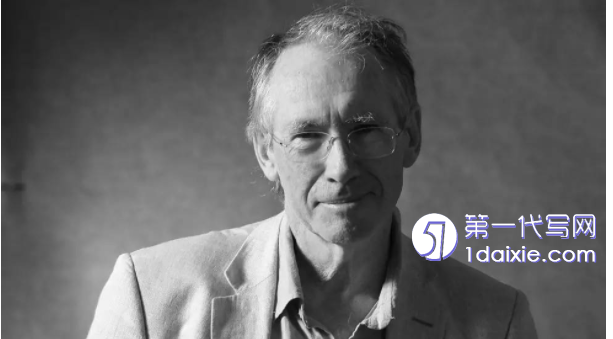本文是一篇英语论文,笔者认为布里奥妮的成长受到家庭、社会、战争等因素的影响,伦理环境促使其在做出伦理选择的过程中最终实现自我成长,并以成熟的伦理意识对阶级不公和历史产生了新的思考,同时引发读者共同反思、铭记历史。
Chapter One Conflicts during Growth: Ethical Predicament
1.1 Ethical Predicament in Family

“An objective ethical or historical context is the basis for understanding, interpreting, and evaluating literature” (Nie, “Fundaments and Terms” 14). Atonement is set around the time of the Second World War. “The creation of the novel is also closely related to the moral and family ethical crisis in British society at that time” (Hu 88). The development of the capitalist economy in the first half of the 20th century leads to the vigorous rise of urban civilization, and the new concept of personal value over family and the consideration of benefits penetrate the family. In such a social atmosphere, the concept of family ethics gradually changes from family-oriented to individual-oriented, and the warmth of the family is seriously eroded. In the 1930s, the Tallis family lives in a gloomy old manor in the south of England. 13-year-old Briony is full of imagination, passionate about writing plays and immerses in the orderly world she creates. Her mother, Emily, is bedridden for health reasons and has no time to care for her children. Her father is busy with work and rarely at home, while her brother Leon and sister Cecilia are too busy with their own studies and other affairs, even if they want to care, they do not have time to focus much on Briony. This seemingly complete and happy family is in fact full of many cracks. Family relations are also “not only a blood relationship, but more importantly an ethical relationship, and family ethics is the basis of social ethics” (Yi 132). In Atonement, the incomplete family relationships are unremarkable, but they set the stage for Briony’s mistakes.
1.2 Ethical Predicament in Relationship
Relationship is the eternal theme of the novel. In addition to the love estrangement from her family, Briony is confused about her comprehension of the love between men and women as a child. Relationship is an important ethical line in Atonement, and the solid love between Robbie and Cecilia becomes a spiritual sustenance for each other in times of war, and this relationship is pure. In contrast, the relationship between Lola and Marshall is based on profit and deception. Briony’s understanding of love during her childhood is shattered by Robbie, leading to a tumultuous journey of self-reflection and inner turmoil. As she matures, she abandons her fanciful daydreams and gains a deeper comprehension of the complexities of love. Ultimately, her time in the hospital harvests a fleeting experience of romance. During the period, she gains a newfound comprehension of the series of things she sees between Robbie and Cecilia in her childhood. At her old age, she eventually discovers the mutually exploitative relationship between Lola and Marshall. Due to her incorrect perception of love, she finds herself trapped in ethical predicament. However, through her subsequent experiences and growth, she engages in critical ethical reflection and develops a more sophisticated understanding of love. This enhanced cognition of love is reflected in her newfound maturity. This part illustrates the ethical predicament Briony faces in the relationship in childhood and adulthood.
Chapter Two Sufferings and Awakening: Ethical Selection
2.1 False Accusation
Briony’s false accusation against Robbie is the main ethical line of the novel. It is also the first important ethical selection she makes in her life. The reason for her mistakes is the subject of much discussion by researchers. Ethical literary criticism suggests that it is biased to evaluate literature in a false autonomy situation that is far removed from the historical scene.
Literature of different historical periods has its own fixed ethical environment and ethical context, and the understanding of literature must return literature to its ethical environment and ethical context, which is a prerequisite for understanding literature. (Nie, “Fundaments and Terms” 19)
Therefore, it is incorrect to make an abstract moral judgement of right and wrong in relation to Briony’s categorical accusation of Robbie’s wrongdoing in isolation from the objective and historical ethical context of the time. Out of her misinterpretation and false imagination of the whole event, as well as her youthful ignorance of love, she develops a great misunderstanding of Robbie. When Briony is faced with the ethical selection of whether or not to accuse Robbie, it is essentially a battle between the human factor and the animal factor in her brain.
2.2 Departure from Home
“People’s understanding of the self is a process of constant development and deepening, and epiphany arises when an event or phenomenon triggers a previously unattained understanding” (Yang 31). Clueless and ignorant, Briony never quite figures out what has happened, but after seeing how her actions make a huge difference to Robbie and Cecilia’s lives, she begins to doubt herself deeply. As Briony grows older, she comes to understand some of the details of what she sees and realizes in hindsight what an irreparable mistake she makes. Through a series of tumultuous emotions, Briony experiences a gradual journey towards an epiphany. She becomes increasingly aware that her ethical selection goes against the established ethical order of her family. As a result, Briony finds herself trapping in an ethical predicament. To change the situation and make amends for the damage already done, she must make new ethical selections.
Adolescents in a familiar environment are always difficult to think about moral teaching, and even rebellious psychology. Therefore, defamiliarization is a necessary condition for enlightenment. In ethical predicament, Briony decides to run away from her original family, to cut off contact with them and to go to a new environment for self-reflection and self-cultivation. At this stage, Briony’s ethical aspirations are transformed into atonement for her mistakes, and the ethical selections she makes thereafter are concrete actions to realize this aspiration. Leaving home, she faces with a change in both the ethical identity and the ethical environment, a painful but important selection that drives her to achieve epiphany.
Chapter Three Maturity in Old Age: Ethical Value ........................ 61
3.1 On Personal Level ........................................... 61
3.1.1 Honorable Novelist .................................. 62
3.1.2 Amicable Interpersonal Relationship ......................................... 64
Conclusion .......................................... 72
Chapter Three Maturity in Old Age: Ethical Value
3.1 On Personal Level
Briony’s long process of atonement is thought-provoking, “From an ignorant girl who kills her loved ones with her fantasies and jealousy to a repentant young novelist, Briony undergoes a harrowing rite of passage” (Zhang 21). The elderly Briony integrates well into society, she becomes a respected writer, and her works are popular among readers. Her personality also changes over the years. She has harmonious interpersonal relationships and a stable living situation, and her relationship with her families also gets eased. The former Briony, who blindly respects the wrong order, disappears until she relies on human reason to achieve self-growth and then returns to the world of adults. A person’s ethical identity is an important sign of his existence in society. The relationship between the individual and society “is not only the main content to be reflected or expressed in literature, but also an important dimension for literary ethical literary criticism to interpret and explore the moral and ethical value of literature” (Li 45). Briony’s maturity is mainly reflected in her decent ethical identity and harmonious interpersonal relationships, which shows that she becomes a person in line with the social order, and it is a sign of her self-growth.

Conclusion
Growth is a process of constant and dynamic development. Mordecai Marcus describes growth as “an important self-discovery and a resulting adjustment to life or society” (222). After undergoing a series of trials and tribulations in society, the protagonist Briony in Atonement undergoes significant personal growth and gains a newfound perspective on life, self, and society.
Growing up is also a constant process of abandonment. Briony’s comprehension of her own behavior is slowly revised in the process of attempting to get out of ethical predicament and constantly making ethical selections. The novel follows Briony’s journey of seeking truth, making atonements, gaining epiphany, and ultimately maturing through ethical predicaments and ethical selections. Initially, Briony believes that she is accusing Robbie out of love and responsibility, with the intention of protecting Cecilia and Lola. As she matures, she begins to see beyond the ordered world she creates and becomes aware of the hypocrisy and corruption that exists in the adult world. Briony comes to understand how her own naivete and prejudice result in her misunderstanding of Robbie, causing various mischiefs, and she desperately seeks forgiveness from both Robbie and Cecilia through the efforts of atonement. The different stages of her growth are also fully reflected in her several different ethical selections, and these are also dialectical selections between truth and falsehood, good and evil, beauty and ugliness. Each of Briony’s ethical selections is an integral and important experience in her growth, the first of which, after wrongly accusing Robbie, leads her on a journey of regret and atonement, and the second of which, fleeing her home to take up an internship in a hospital, leads her to suffer both physically and mentally. Finally, she chooses to become a writer, but is constantly caught up in the predicament of publication. Briony gains the ethical consciousness to judge true and false in the process of making ethical selections, and in various trade-offs and choices, she is ready to move on to the next stage of ethics. These ethical selections fill her life with tragedy, but it is precisely in desperate situations that people have more perseverance to reconstruct themselves.
reference(omitted)
